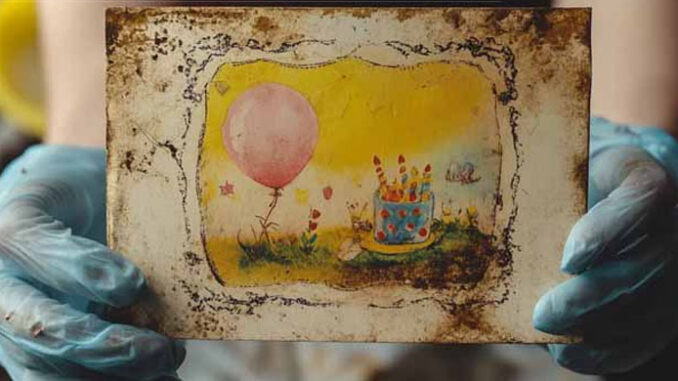
My phone buzzed just as I was checking my cleaning supplies for the day.
“Clean Slate Services, this is Claire,” I said, tucking the phone between my shoulder and ear.
A frail voice responded, “My name is Margaret. My daughter told me you help people… people who can’t do it themselves. I think my neighbor needs that. Her name’s Eleanor.”
Margaret’s tone stopped me cold. I’d heard it before — quiet fear for someone fading away.
“She won’t ask for help, but she needs it,” she said. “Her yard’s overgrown. Mail’s piling up. When I saw inside her house… it wasn’t good.”
“I’ll be there in an hour,” I promised.
I texted my husband and business partner, Ryan, and grabbed our “first assessment” kit. At Eleanor’s house, the signs were immediate — a collapsing mailbox, dying flowers, and silence after I knocked.
When she cracked the door open, she looked worn down, defensive.
“I don’t need help,” she said.
“I’m not selling anything,” I replied gently. “Margaret asked me to come. She’s worried.”
I recognized the shame in her voice. It reminded me of my mom during her lowest points. “Sometimes handling it means letting someone in,” I said.
Eleanor hesitated, then whispered, “I don’t even know where to start.”
“You don’t have to,” I said. “Why don’t you visit with Margaret while I get started?”
She agreed, and I walked her next door. Margaret welcomed her with open arms and tea, mouthing a quiet thank you to me.
I called Ryan: “Bring the heavy-duty bags. And maybe a respirator.”
Inside Eleanor’s house, the air was thick with neglect. The kitchen overflowed with rotting food and trash, and mold traced the baseboards. In the bedroom, I found antidepressants and sleeping pills — signs of a deeper pain.
But it was the second bedroom that hit me hardest. Frozen in time, it was clearly a child’s room — untouched, preserved. Dust-covered toys and folded kids’ clothes. A quiet shrine.
Then I found old birthday cards for a boy named Michael. The last one read, “…would’ve been 13 today.”
Later, a yellowed newspaper in a drawer told the rest: Eleanor’s husband had died in a car crash rushing to see their son in the hospital. Michael passed a week later.
I went to talk to Eleanor. She sat quietly at Margaret’s table, her hands wrapped around a cold mug.
“I found this,” I said, placing the newspaper in front of her.
She didn’t look at it. “I should’ve thrown that away years ago,” she whispered.
We sat in silence until she spoke again — about her son’s worsening asthma, the hospital trip, the crash, the unbearable loss.
“I kept his room the same,” she said. “I just… closed the door.”
“You loved them. That’s not silly,” Margaret said firmly.
Eleanor finally broke down, the years of grief pouring out. “It wasn’t just James and Michael. I stopped existing, too.”
I reached for her hand. “You’re still here. And you’re not alone anymore.”
When she asked if the house was terrible, I reassured her. “Nothing we can’t fix.”
She walked through the cleaned rooms later, stunned by the transformation. We hadn’t touched the child’s room. She nodded in quiet thanks.
The next morning, Eleanor greeted us wearing a clean blouse, her hair brushed. “Margaret and I are going to look at plants for the garden,” she said shyly.
By the afternoon, the house was bright, fresh, and open — like Eleanor herself. Margaret brought potted herbs for the kitchen.
“I don’t know how to thank you,” Eleanor said.
“You don’t have to,” I replied.
As Ryan and I packed up, we watched Eleanor and Margaret drinking coffee at the table, sunlight spilling in.
“Another clean slate?” he asked.
“The cleanest,” I said, smiling.
Leave a Reply